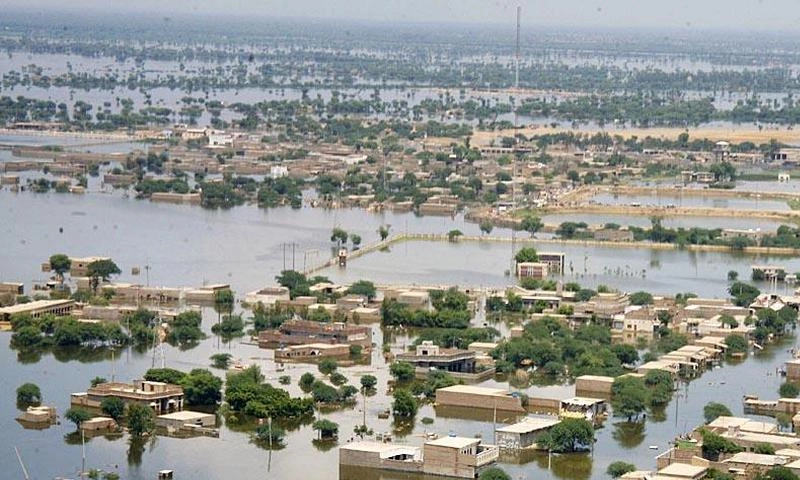- Web Desk
- Feb 19, 2026
Pakistan suffers billions in losses from climate-related disasters
-

- Web Desk
- Aug 12, 2025

ISLAMABAD: Pakistan has suffered billions of dollars in losses due to climate change-induced disasters, with damages exceeding $30 billion in 2022 alone and recovery needs estimated at more than $16.3 billion.
This was reveled in the third PCC report issued by the Overseas Investors Chamber of Commerce and Industry’s (OICCI), which urges immediate climate financing to secure Pakistan’s future.
OICCI Secretary General M Abdul Aleem warned that global trade rules such as the European Union’s Carbon Border Adjustment Mechanism, coupled with Pakistan’s reliance on fossil fuels and carbon-intensive practices, are creating export challenges.
Climate change: Over half of Europe, Mediterranean basin hit by drought
“Reducing carbon emissions and securing green finance are no longer optional — they are essential for economic sustainability and global competitiveness,” he said.
The report noted that despite contributing less than 0.9 per cent to global greenhouse gas emissions, Pakistan ranks first in the 2025 Global Climate Risk Index and continues to face disproportionate losses from climate change.
It highlighted that in 2022 alone, disasters linked to climate change caused over $30 billion in damages, requiring more than $16.3 billion for recovery. Air pollution alone accounts for over 128,000 premature deaths annually.
The findings also showed that climate change has reduced agricultural productivity by 10 to 20 per cent, squeezing livelihoods and straining the economy. Experts estimate Pakistan needs $40 to $50 billion annually to effectively tackle climate threats.
Secretary of the Ministry of Climate Change and Environmental Coordination Aisha Humera Chaudhry said that climate risks facing Pakistan are a globally recognised reality, but timely and adequate environmental funding must be directed toward local solutions for effective response.
She stressed that the private sector has a key role in the national climate strategy, with OICCI members playing a significant part.
She warned that without immediate carbon emission reductions, Pakistan’s exports could face difficulties under new global trade regulations, particularly the EU’s carbon border mechanism.
The PCC report also outlined actionable measures, including climate-smart agriculture, industrial decarbonisation, plastic circularity, and the development of a carbon market. It emphasises the need to link climate finance with policy support and capacity-building to bridge Pakistan’s climate finance gap.




